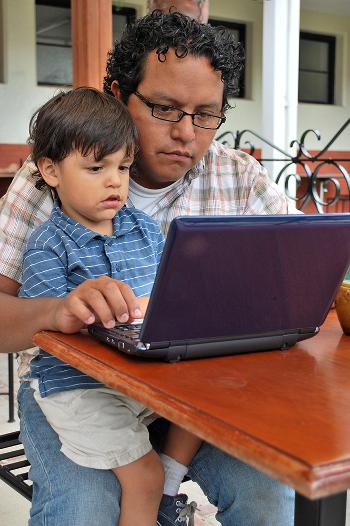What time do we need to be there?
Duration/age

Next time you are planning to go somewhere with your child talk to them about what time you need to be there. Explain that activities have a start time. You can show them how this is usually represented - with numbers written as a time.
The movie starts at 2pm so we will need to leave home at 1pm to be there in time.
Look and see if there are different start times for the event. Can you pick from one of many different times or does the event only happen once?
The movie we want to see is on in the morning and the afternoon. Do you want to go before or after lunch?
Materials you will need
- Clock
- Watch
Alternative tools
- Tablet / smart phone
- Newspaper
- Timetable
- Mobile phone
- Tickets
- Movie session time
Why does this matter?
Talking about time and the different ways we can represent it helps children to understand that time can be about the present, the past and the future.
Exploring time together with your child helps them to begin to sequence events and understand when things will happen.
What does this lead to?
As children explore time they are learning to make predictions about when things will happen, how often they will occur and the likelihood of it happening.
Time can be represented as a numeral on a clock, as an event or something that happens at different times of the day. Time can be represented as something that will happen very soon or is over quickly. It can be an event that lasts a long time or something that we need to wait to happen. When we talk about time as an event or a routine, children are developing an understanding that we might use different language.
Language to use
- Open, closed, closing, session time
- Hours, time, clock
- Event
- Day, week, month, weekend
- Start time, end time
- Beginning
- Alternative, options, more, multiple
- Day time, evening, morning, afternoon, lunchtime, dinner time, bedtime
Questions to use
- Is there only one movie session or are there more?
- What time does it start?
- How long will it take to get there? We need to know so we can be on time.
- How can we find out when the event starts?
Useful tips
- You might also like to take a look at the activities What's the time, Mr Wolf? and Opening hours.
- When talking to your child about time, talk about an event they do every day.
- Remember to talk to your child in your home language.
More ideas
- Go on a time hunt around the house.
- See how many different starting times you can find in the paper.
Variation by age
Three to five year olds
- Make a clock face and mark the different start times on the clock.
Questions to ask
- Will the movie start before or after lunch?
- Can we pick which session time to go to or is it only on once?
Language to use
- Choose, select, options, choice


